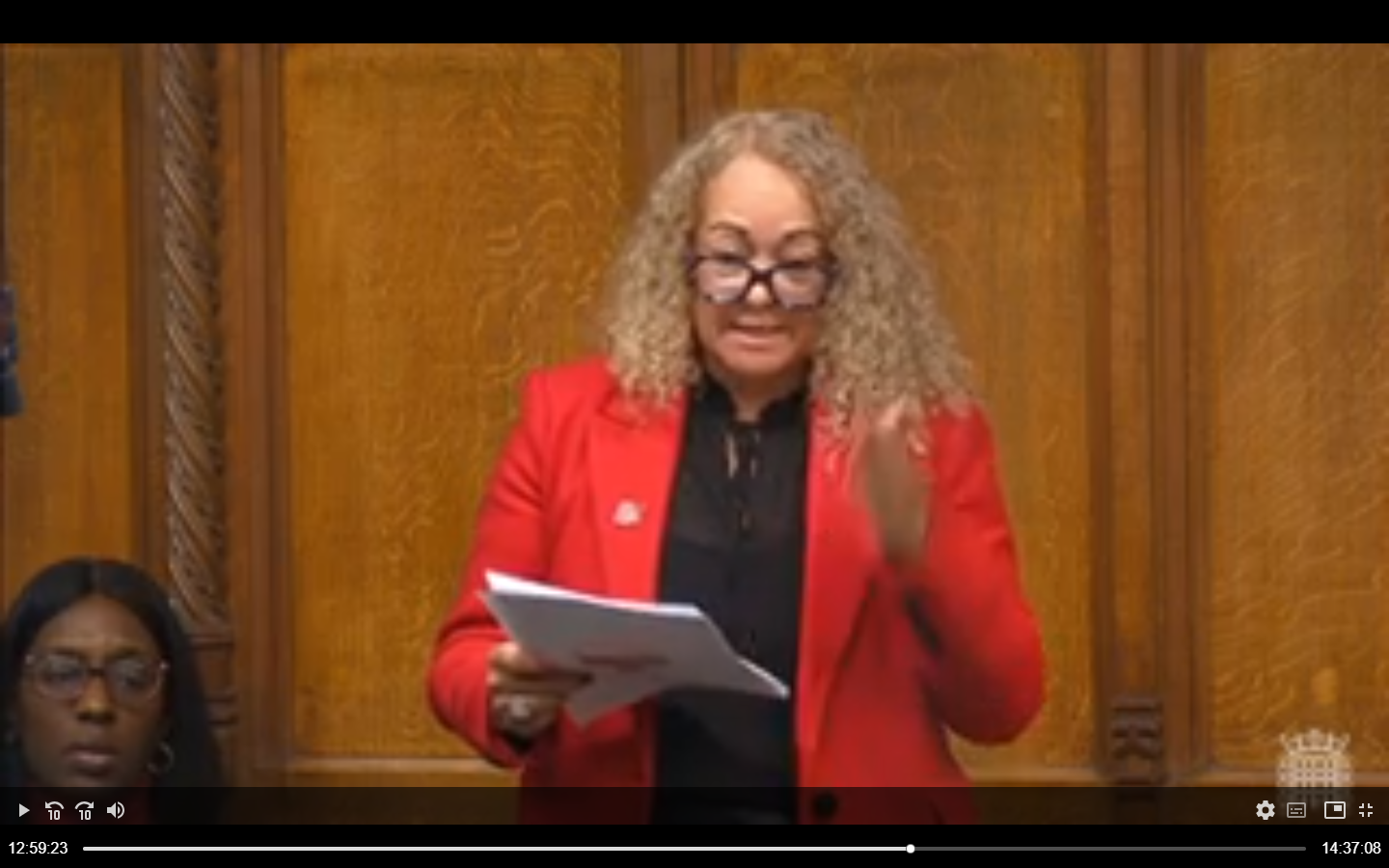Keeping up the pressure for joint enterprise reform
An update on recent work attempting to reduce the scope of joint enterprise laws.
We have been working with Labour MP Kim Johnson, JENGbA and legal experts in a new attempt to reform joint enterprise. This has been in the shape of supporting a Private Members Bill proposal for reform. On Friday 2nd February Kim Johnson brought her Bill before parliament.
The Bill proposed amending the Accessories and Abettors Act 1861 so that only those who make a significant contribution to a crime can be held liable for it. This follows widespread criticism about the broad application of secondary liability or ‘joint enterprise’ laws.
The two hour debate saw both sides of the House acknowledge concerns about the use of joint enterprise laws, including those highlighted by the Centre's own research.
Conservative MP Rob Butler backed the need for reform. The Bill raised, he said:
A legitimate and well-founded concern about joint enterprise… I agree with much of what [Kim Johnson] said in her speech, and I do so partly as a result of my experience in the criminal justice system prior to coming to this place… I encountered numerous people who had been either accused or convicted of offences under joint enterprise. Usually that was right, but sometimes it was not—and on occasion it was blatantly wrong… Joint enterprise is an important and valuable concept, but at the moment its application is undermining that value and carries the risk of diminishing confidence in our justice system.
Too difficult
The government did not support the Bill. For the Bill itself, this means that whilst it is listed for another debate in June, it is unlikely in practice to be given any more parliamentary time.
The government’s statement in response to the Bill was an important potential opportunity to hear objections and find meaningful ways forward.
Disappointingly, its response was more akin to a government finding reasons to support its established stance of inaction, rather than take up the challenge of genuinely engaging with the issue.
Leaving aside some of the flimsier aspects of their stance (that the law is complex and that the problems with joint enterprise have been dealt with by the Supreme Court in 2016), the more principled parts of the government response were that the proposed change:
Could lead to difficulties in securing a conviction and therefore bringing offenders to justice.
And that ‘significant contribution’ may not be a clear test for juries to undertake.
The current vague law may be convenient for prosecutors. The cost is convicting people, often for extremely long prison sentences, whose involvement in a crime was not significant.
The Centre is publishing a briefing later this year by Nisha Waller, exploring significant contribution and joint enterprise reform in more detail.
Progress
The Labour frontbench response to the Bill was more hopeful. Janet Daby, Shadow Youth Justice Minister, said a review of the law is required. And that Labour, should they be in government, would look to reform joint enterprise laws.
That an increasing number of MPs are vocal about both the need for reform and the possibility of parliament intervening, is progress. Whilst joint enterprise has had long standing support from particular parliamentarians, for years a stock Westminister response has been been of reluctance to take up an issue that is seen as a matter for courts. However there is clearly still some way to go.
Raising awareness
The Bill has also brought widespread attention to joint enterprise beyond the Commons Chamber. Helen Mills, Head of Programmes at the Centre, contributed to Radio 4’s coverage of the issue – take a listen here.
It has also been reported by The Guardian and in this powerful piece, Independent, Mirror, BBC, and The Times, amongst others. An open letter demonstrated the widespread support for change.
Since parliament’s debate, the case for reform has since been taken up by others. Baron Finkelstein writing in the The Times said:
This doctrine is obviously necessary…But equally obviously, the law of joint enterprise requires revision. Too many people with tenuous involvement in a crime are ending up in jail for long stretches, sometimes longer than the actual perpetrator… I think there is something wrong with the law on joint enterprise and we need to fix it.
Next steps
Our Head of Programmes, Helen Mills, who has been leading on our joint enterprise work said:
We have been proud to work alongside JENGbA families who have campaigned tirelessly on this issue for over a decade, as well as draw on the expertise and amazing energy of legal experts, parliamentarians, academics and others to support this work.
My colleagues and I will continue to support efforts for reform and build concrete ways forward. In the short term this will include supporting efforts for the proposals to be debated in the Lords as an amendment to the Criminal Justice Bill. Longer term I hope this Bill has put down a marker for when, not if, the scope of joint enterprise is reformed.
Highlights from the debate
Kim Johnson MP on unjust Joint Enterprise prosecutions (Part One)
Kim Johnson MP on unjust Joint Enterprise prosecutions (Part Two)
Rob Butler MP, on the meaning of ‘significant’ in ‘significant contribution’
Rob Butler MP on why reform to Joint Enterprise is needed
Rob Butler MP on unjust Joint Enterprise prosecutions
Further resources
- A transcript of the parliamentary debate
- Full text of the Bill
- A Briefing produced for the 2nd February debate
- A mirror amendment to the Private Members Bill was debated on the 30 January at the Committee stage of The Criminal Justice Bill (from column 478).
- The Centre is grateful to the Transition to Adulthood Alliance at the Barrow Cadbury Trust for supporting this work as part of the Young Adult Safety project.
